
All categories
Featured selections
Trade Assurance
Buyer Central
Help Center
Get the app
Become a supplier

(1096 products available)




















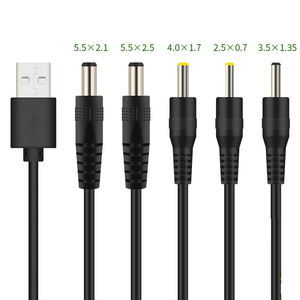
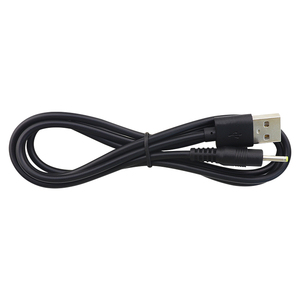
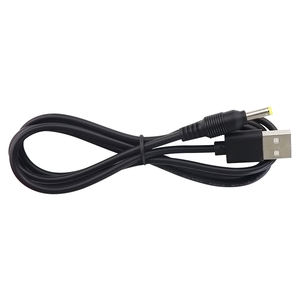
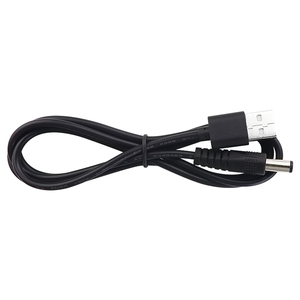
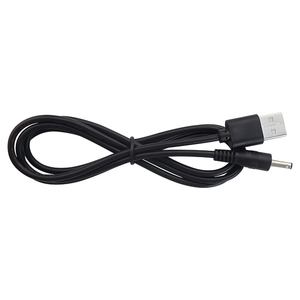


























SD card extension cable types have different applications and characteristics. Here are the common types of SD extension cables available on the market.
Standard SD Card Extension Cables
Standard sd card reader cables are designed for general use. They provide a direct interface between the SD card slot and the card. Users commonly employ these types in digital cameras, camcorders, and other electronic devices.
Micro SD Card Extension Cables
Micro SD card extension cables perform a similar function as standard cables. However, they are specifically designed for micro SD cards. These cables provide a slot for the micro SD card. It allows users to connect devices that use micro SD cards, such as smartphones and drones.
USB to SD Card Extension Cables
USB to SD card extension cables let users connect an SD card directly to a computer via USB. This type of cable integrates an SD card slot with a USB connector. It enables data transfers with ease between the SD card and the computer. This type is great for users who want to access their card's content quickly.
Long-Distance SD Card Extension Cables
These cables are specially designed to minimize data loss and interference. They are manufactured using high-quality materials. Long-distance SD cables support data transfers across greater distances. Users need these cables in large setups, like conference rooms or broadcast studios.
SD Card Reader Cables with Multiple Card Formats
These cables include slots for different card types. They support standard, micro, and even mini SD cards. This type of cable's versatility makes it a good solution for buyers working with multiple devices using different card formats.
Photography and Videography
In photography and videography, durable and long-distance extension cables give flexibility in production. They allow cameras to be controlled from a distance while keeping the cameras fully operational. This is highly important for event coverage, movie-making, and document production, especially in large setups.
Industrial and Embedded Systems
In embedded systems, SD card extension cables are key to maintaining compact designs. The SD cards provide expanded storage options for industrial machines and automation systems. For instance, in manufacturing and other industrial environments, where machines operate on complex embedded systems, SD card extension cables keep those systems compact. This is while giving the storage capacity needed to run system smoothly with high efficiency.
Digital Signage and Advertising
Users utilize SD card extension cables in digital signage to update content remotely. Extended cables let them position displays away from the media player. Businesses who use these cables in their displays enjoy flexible placement options for their screens in any environment. This is crucial for advertising, especially in retail or high-traffic areas.
Medical Equipment
In medical equipment, SD card extension cables are necessity for data storage in devices. These cables allow flexibility in positioning imaging systems, wearable devices, and diagnostic tools. They also ensure all the data collected is securely stored for future references.
Gaming and VR Systems
SD card extension cables support enhanced storage for gaming consoles and virtual reality systems. They allow users to store larger games, downloadable content, and other media. A seamless gaming experience is important for gamers. Keeping games and content accessible through these cables is key to smooth performance.
Extended Reach
This is the main benefit of an SD card extension cable. They allow convenient access from a SD slot, enabling distance flexibility for users. The most common lengths for these cables are 3 to 10 meters. This provides enough extension without compromising the quality of the data transfer.
Compatibility
Most SD card extension cables support multiple card formats. This includes standard SD, microSD, and miniSD cards. They integrate seamlessly with a variety of devices, from digital cameras and smartphones to industrial equipment and digital signage. For added convenience, some cables also feature a built-in card reader to easily swap cards in different devices.
Material and Durability
High-quality materials manufacture good SD card extension cables. They provide long-lasting service and premium data transfer speeds. Most durable cables use PVC and metal housing to increase their longevity. Similarly, durable cables also have reinforced connectors for added durability. This allows users to rely on their performance in both everyday and harsh environments.
High-Speed Data Transfer
Good SD card extension cables support high-speed data transfers. This is majorly for professionals in photography, videography, and gaming since they always need cables that support large file transfers. For this reason, most have a data transfer speed of up to 480 Mbps. They support 4K and 8K video transfer without lag or buffering.
Plug-and-Play Design
The hassle-free installation of an SD card extension cable makes it user-friendly. Simply plug the cable into the device and the SD card slot to start using it immediately. There is no need for external power or drivers to install. This makes it convenient for those users who need solutions to their problems quickly.
Installing an SD card extension cable is easy and takes a few simple steps. To begin with, find an appropriate SD card extension cable. Make sure the length meets the user's needs and the cable supports their device. To get the best results, all SD card extension cables must be of premium quality.
The next thing to do is to connect the SD card. Insert the SD card into the slot. Then, connect the other end to the device. The process will vary slightly depending on the user's device and needs. Once this is done, the next step is to secure the connections. Make sure the cables are firmly connected on both ends. Sometimes, cable ties may be used to keep cables neatly organized, especially in large setups.
In most cases, users employ SD card extension cables for distance flexibility, quick access, and the convenience of content updating. Remote operation of devices like cameras and card readers helps get content from the device to the user, no matter the distance. Businesses also position digital signage or advertising in hard-to-reach places, like high ceilings.
Similarly, users of VR or gaming systems position their extensions for optimal performance. Lastly, remote medical services use these extension cables to update their medical records and data from their cards to maintain helpful data availability for future needs.
Regular Inspection
For durable and longer-lasting service, always regularly inspect the cables and connections for signs of wear. For instance, check for physical damage like frayed wires or bent connectors. Doing so gives users a chance to quickly rectify problems. People who use these extensions in large-scale operations should have a routine daily plan. This allows them to minimize downtime.
Proper Storage
When not in use, properly store the SD card extension cable. Always coil them gently to avoid kinks or damage to the wire. Also, avoid using them in harsh environments. For example, high temperature, moisture, or excessive dust, can degrade their quality over time. If users have to use them in outdoor settings, they should have protective coverings to shield them against such elements.
Avoid Excessive Pulling
Avoid pulling excessive force on the cables. This may cause internal damage and gradually shorten their lifespan. Instead, give users seamless flexibility in positioning their devices. Use cable ties to secure them neatly and avoid tripping hazards.
Clean Regularly
Debris or dust accumulation on cables can impact data transfer speeds. Always routinely clean SD card extension cables using a microfiber cloth. The cloth removes any dust or debris that may accumulate on the cable. For maintenance, inspect the cables for signs of wear or physical damage. This ensures they continue functioning optimally for users.
Data Transfer Speed
The most essential quality of an SD card extension cable is data transfer speed. Users want cables that can handle large amounts of data. This includes high-resolution videos and photos or large files. Standard extension cables support data transfer speeds of up to 480 Mbps. This is enough for most common applications. However, for heavy users, there are enhanced-speed cables that support even faster transfers.
Device Compatibility
Most SD card extension cables are compatible with a wide variety of devices. This includes digital cameras, drones, gaming consoles, and industrial equipment. Some cables have built-in card readers supporting various card formats. This adds extra versatility. Before buying, users should check that their cable is compatible with their devices to ensure smooth operation.
Cable Length
Usually, most SD card extension cables range in length from 3 to 10 meters. A longer cable compromises signal quality and, by extension, data transfer speed. The optimal length will largely depend on the user's setup. Always select the correct length to maintain high-speed data transfers without interference.
Build Quality
A strong build-quality cable will outlast one with a poor build quality. This is especially true for users constantly transporting their cables. The common materials used for these cables are reinforced connectors and durable PVC.
Electrical Safety
An SD card extension cable carries an electrical current. Poorly constructed cables create a risk of electrical shock. They also pose fire hazards. Always select a cable with proper insulation to prevent these hazards.
Secure Connections
Loose connections cause sparks or short circuits. When this happens, they can cause data loss or hardware damage. Users ensure their cables have secure connections to minimize the risk of data corruption, device damage, or accidents.
Grounding
The cable grounding prevents static electricity build-up. Without grounding, they risk hardware damage or data loss. Properly grounded cables ensure users' devices remain safe while operating at an optimal performance level.
Device Protection
Most premium-quality SD card extension cables come equipped with surge protection. This protects users' devices from voltage spikes. Extension cables without this feature put both the cards and the devices at risk. For additional safety, users should always store their cables in dry, cool environments to prevent overheating or damage from moisture exposure.
A1: The optimal length of an SD card extension cable is between 3 and 10 meters. Longer than this, users risk losing signal quality and data transfer speed. Always select the right length to maintain high-speed data transfers without interference.
A2: Most SD card extension cables are compatible with a variety of devices and card formats. Just ensure that the cable supports the user's device and card type for seamless performance.
A3: For this type of transfer, using the right SD card extension cable is vital. The cable must support high-speed data transfers, and the card must be of a premium-quality extension cable. Always check the cable's specifications to see if it can support 8K video transfers.
A4: Premium-quality SD card extension cables come with surge protection. It protects the user's devices from voltage spikes. This means that devices connected to quality cables are safer from potential power surges. They also have built-in surge protectors.
A5: No, they are not designed to enhance the storage capacity of a device. Users can use them to conveniently access files stored on the card from a distance. Still, the card itself limits the storage capacity based on the device's internal hardware.